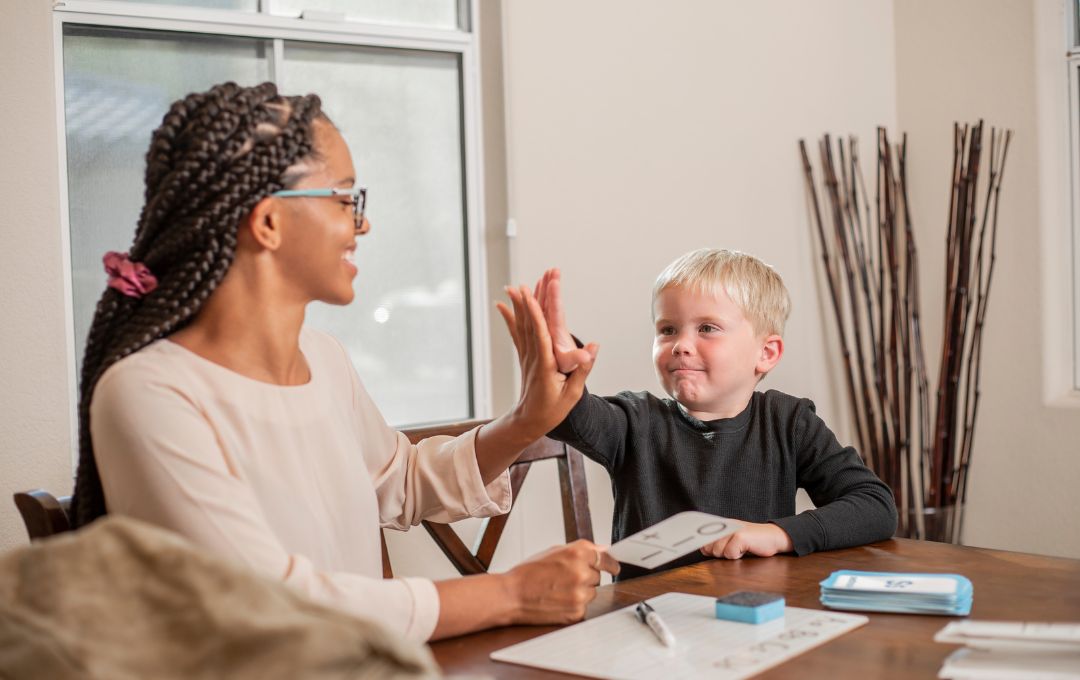It seems as parents today we spend an inordinate amount of worry over how our children measure up? What percentile are they in? How do they rank against their piers? Can they keep up with or get ahead of the pack? From infancy, we seem to place importance on milestones based on age or time spent working on something rather than on the mastery of skill alone. And, likewise, most schools seem to favor methods and modes of education that move children along in a pack, covering units of information by a certain date.
However, children, like all humans, have their own distinct personalities, innate talents, unique abilities, and by golly, they also learn in different ways and at different rates! Categorizing them by age and last name so they can be neatly placed into a common time-based school system may seem orderly or efficient. However, it also tends to assume that all 20-35 students in the class can and should progress in the same way and at relatively the same speed. I don’t know about you but, I don’t even read a novel, follow a recipe, watch a DIY video, or walk the dog in exactly the same way or at the same speed as my piers! How can we expect our kids to truly thrive in such a learning environment? It seems that by design, the system favors speed over competence and conformity over originality.
In real life, on the other hand, it’s competency we prize. The carpenter, chef, lawyer or doctor I ultimately hire isn’t necessarily, the one who graduated first, or whose certificates and degrees are most illustrious, but the one whose work or results I admire most. So…might we advocate for our children’s educational success more effectively by placing importance on competency rather than time spent or even grades?
Changing our views of education to prize true mastery over grades or time spent, may seem far off or impossible but there are many programs, home-school products and other educational techniques that we can incorporate.

Celebrate competence rather than competition
When children come home from a difficult day at school, perhaps we can help them to look at what they were last doing well. Did they complete a project successfully, ace a quiz or reach some personal best? If it takes them longer to understand something than their friends, remind them that mastery of a subject is far more important in life than swiftness.
Get individualized help
It often takes an individualized approach or some one-on-one attention to figure out where a child’s understanding went out the window. Tutors, small academic after school groups, private schools with a smaller teacher to student ratio, and proficiency based, online learning products can be invaluable.
Encourage children to reason
In a world filled with information and fast paced “content”, kids have access to more facts and ideas than ever. Being able to sort through the onslaught of that information in order to formulate their own ideas is invaluable. Encourage children to look at where information is coming from and help them to start to think about its particular merits. A questioning student might appear to be a disruption in the classroom, but that student has actually started to reason. Rather than focusing on the memorization of facts, encourage children to ask questions and evaluate information.
 Hooray for books!
Hooray for books!
A lifelong love of reading goes a long way.
Help children to become great readers by encouraging them to read a quantity of books at a level that is easy for them. They should be able to read aloud with little effort and without having to stop and look up or ask for the definitions of multiple words on each page. This is not necessarily the same as the age rating suggested on the book jacket. It’s important that kids practice reading at a comfortable level before moving onto harder more challenging books. Developing a love of reading involves balance. Giving children reading materials that are far too difficult with too many big words that they don’t know, just sets them up for frustration. It’s important to start small and build a strong foundation before moving up to more challenging titles. An individualized approach is paramount when it comes to reading.
Making the switch from a purely time-based educational plan to one that favors mastery can start at home. Hopefully, in time, more schools will begin to celebrate competency in the classroom, rather than competition!
 Ability School is a private school for Pre-K through Eighth Grade in Englewood NJ. For nearly 40 years, they have been educating children using a 100% proficiency-based curriculum. Students at Ability School work on personalized academic programs in small classes and progress at their own pace. The school also offers private and small group tutoring as well as a summer program that incorporates both academics and camp activities.
Ability School is a private school for Pre-K through Eighth Grade in Englewood NJ. For nearly 40 years, they have been educating children using a 100% proficiency-based curriculum. Students at Ability School work on personalized academic programs in small classes and progress at their own pace. The school also offers private and small group tutoring as well as a summer program that incorporates both academics and camp activities.

